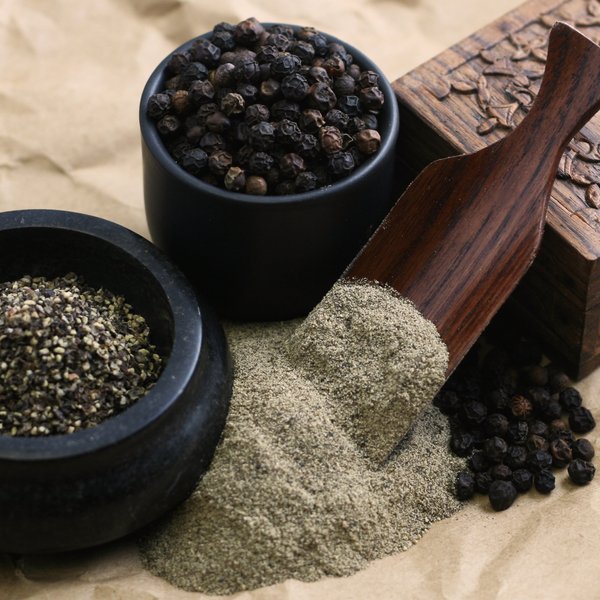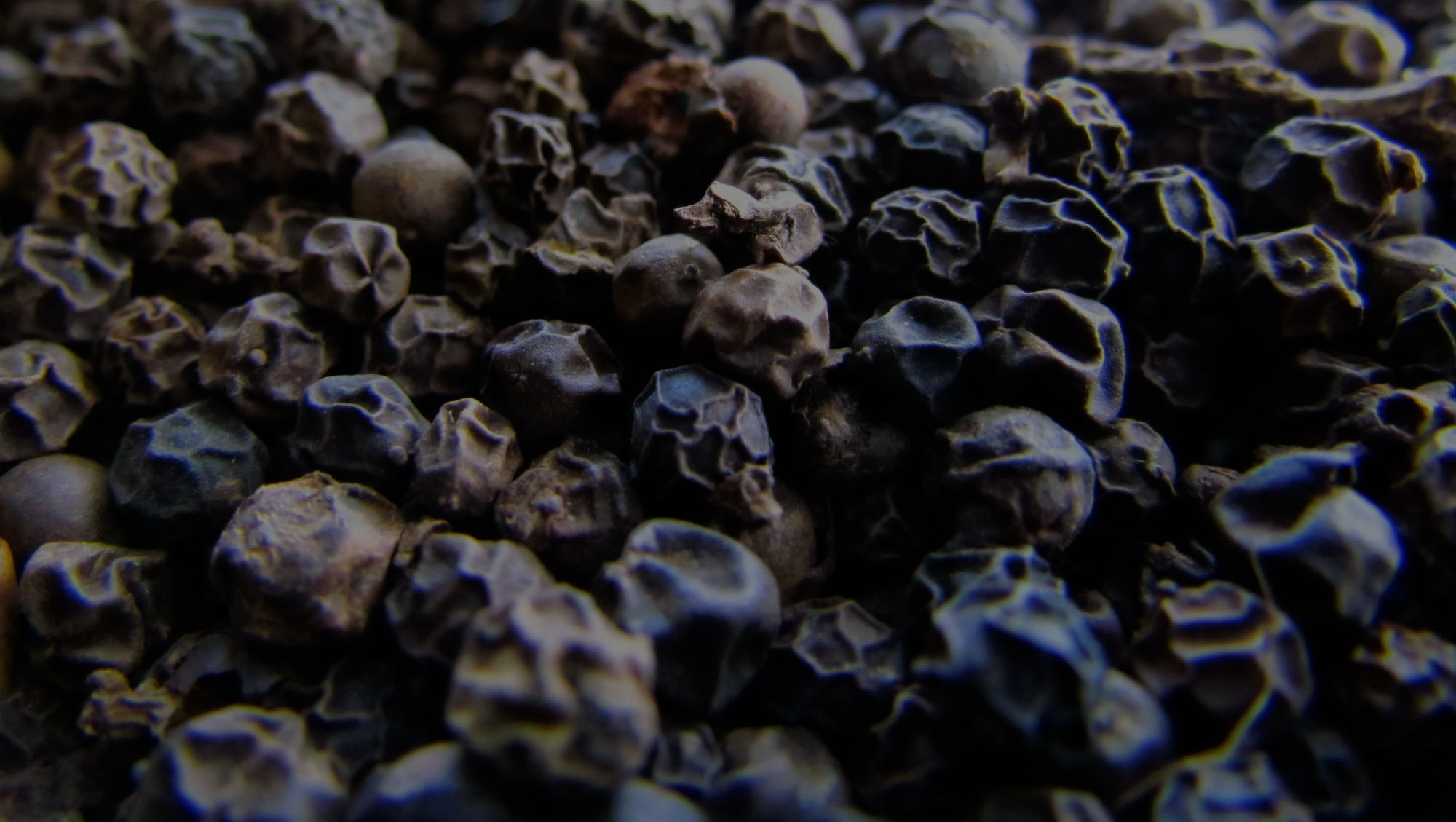THE KING OF SPICES – BLACK PEPPER
All hail the king of spices! Black pepper (Latin nomenclature: piper nigrum) is perhaps the most common and best known of Jahmu’s ingredients; showing up in history as early as 2,000 BC and over the centuries spreading from India – black pepper’s native land – to every corner of the globe as a seasoning and food additive. But as with all of our core spices, there is more to black pepper’s story than just a flavorful kick. Piper nigrum is a green, leafy vine that produces “spears” of small green berries which, after they are harvested and dried, become the wizened black spheres we call peppercorns.
Black pepper plays a fairly small role in the overall makeup of Jahmu (representing about 1% of our Liquid Sunshine recipe and less than .25% of our Golden Milk recipe); much of the spice and heat in our recipes comes from ginger and cayenne pepper. However, black pepper’s own spicy taste comes from the chemical piperine, which interacts with curcumin (one of the principal components of turmeric, which plays a huge role in our Jahmu recipes) and makes the latter chemical much more easily absorbed by the human digestive system (see ncbi ref). Essentially, pepper “unlocks” many of the positive effects of turmeric, effects that would ordinarily be lost without the bioactive bond that piperine provides. King of spices, indeed.


Despite being a commonplace modern commodity, pepper was at one time a true luxury that only graced the tables of royals and the obscenely wealthy. Black pepper has enjoyed a place in Southeast Asian and Indian cuisine for nearly 4 millennia- it was initially traded to China and Egypt (where it was placed in the nostrils of deceased pharaohs before their entombment) before cross-continental trade brought the pungent spice to the Greeks, Romans, and, later, to Europe.
The vast majority of pepper was produced on the Malabar Coast of India, a monopoly that allowed India to maintain the extortionist pricing of the original black gold until the rise of powerful English and Dutch trade interests in the 1600s expanded the market and sparked black pepper’s steady climb to its current ubiquity.
In ancient times black pepper was used as a folk remedy for conditions such as constipation, insomnia, and eye maladies (for which a pepper poultice was prescribed for direct application to the afflicted eye – sounds painful). These days black pepper is mostly enjoyed for its flavor profile, but recent studies have hinted at some very significant medicinal applications above and beyond pepper’s high levels of manganese, iron, and vitamin K. The aforementioned bioavailability boosting qualities of piperine operate in accord with not only curcumin but also selenum and Vitamin B, among others, which means black pepper could be integral in ensuring we get the most out of these helpful compounds.
Another study (http://www.ncbi.nlm.nih.gov/pubmed/26023568) performed this year tested the impact of black pepper on animals suffering from neurodegenerative disorders akin to Alzheimer’s disease, with the conclusion that pepper was effective in preventing Alzheimer’s symptoms and increasing memory potential in treated animals. Suffice it to say that, like many of Jahmu’s primary ingredients, we are only just beginning to understand the nature of piper nigrum’s relationship with the wonderful machine that is the human body.

